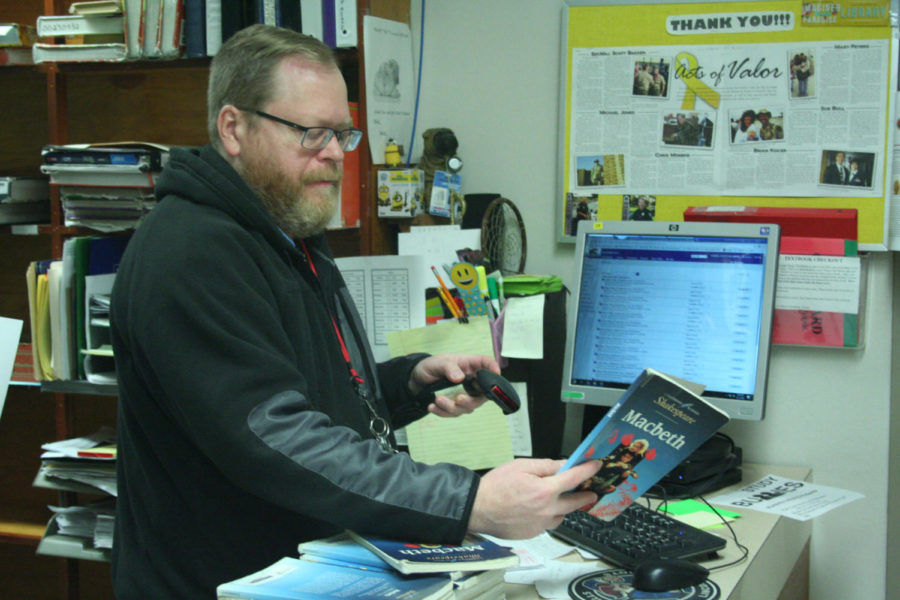Inside the textbook cave with Mr. Fjellanger
One of Russell Fjellanger’s many duties includes scanning books for students.
March 21, 2018
Russell Fjellanger emerges from back room shelves of the textbook room and greets the student waiting for him with a bearded expression of joy on his face.
“The part I enjoy the most? Right here. This is what I enjoy the most, working with you guys. That’s what I thrive on, it’s why I’m here,” said Fjellanger.
Fjellanger acts as the caretaker of what he sees as an incredibly valuable resource at LHS.
“Everything you guys use is taxpayers’ money. I think we need to be cognizant of that. If we’re not taking care of our own things it’s like we’re not taking care of our own things at home. I’m trying to take care of this for the whole community,” said Fjellanger.
For Fjellanger, textbooks are more than boring stacks of paper that turn backpacks into sandbags. He believes that since textbooks are worth so much money, they can be used to teach students financial responsibility.
“I try to teach students to budget their money. It’s not just us nagging them about overdue books. This is your money, this is your parents’ money, this is taxpayers money. Taxpayers paid for this,” said Fjellanger.
Fjellanger performs his duties from the textbook cave, two rooms off of the library.
“In my mind I might be a textbook hero,” said Fjellanger.
Fjellanger graduated from the University of Sioux Falls with an English major and a social science minor. He taught at OGHS for a year before switching to a program run by the school district called Bridges which worked with at-risk kids. Then he switched to the RISE program where he worked with students with disabilities.
“My first job while in college was working at a place called Lifescape. I worked right out of high school with those kids and I think that’s where the passion to work with children came. That group is a fond part of the way I am, but it’s also everybody, every kid. It actually goes to every human being because I love working with staff too,” said Fjellanger.
Although Fjellanger loves his job, it still frustrates him when kids do not turn their textbooks in.
“The most challenging part is when students don’t return [textbooks]. I’m trying to figure out ways to find them, and it’s frustrating when [students] know that it’s overdue but they don’t bring it back,” said Fjellanger.
Even though a lot of students do not consider textbooks very important, Fjellanger calls them “teaching tools”. Even if students lose or damage one of the books Fjellanger still wants to help.









